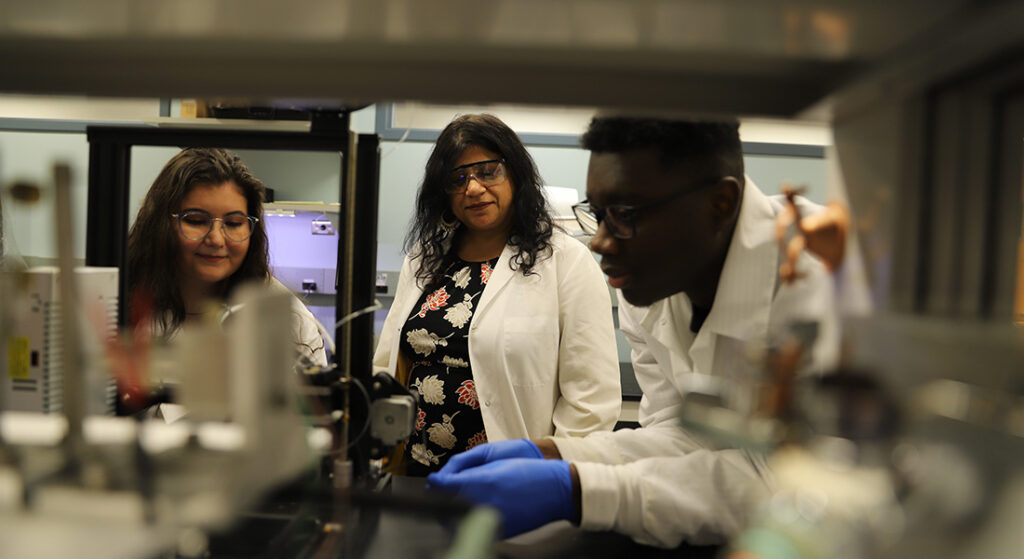
With Professor Julie Hasenwinkel taking the position of associate provost for academic programs, Professor Shikha Nangia has been appointed as interim chair of the department of biomedical and chemical engineering (BMCE). Her role will begin effective August 1st.
Nangia joined Syracuse University in 2012. Her current research focuses on developing computational approaches to examine molecular and structural biophysics. Her primary project is to explore treatments for Alzheimer’s and Parkinson’s diseases by examining the molecular architecture of the blood-brain barrier. Her work also includes multiscale modeling of integral membrane proteins, intrinsically disordered proteins, protein hydropathy, lipid membranes, bacterial membranes, epigenetics, drug delivery, thermo-responsive biopolymers, and polymeric gels. Her work is a highly multidisciplinary research portfolio that interfaces with computer science, math, engineering, biology, chemistry, and medicine. She has multiple collaborations with experimental bioengineers, chemists, and physicists worldwide. Nangia has published as a leading author in various journals, including Biomacromolecules, Macromolecules, JACS, JBC, PLoS Pathogens, Soft Matter, etc. She is also an artist and has designed artistic renditions of her scientific discoveries featured on the cover of several journals (Biomacromolecules, Langmuir, JCTC, JPC, and ChemComm). She is currently an Associate Editor of ACS Applied Bio Materials.
Nangia’s research has received substantial funding from the National Science Foundation (NSF) and the National Institute of Health (NIH). These awards include NSF CAREER (2015), NIH R21 (2015), NSF CBET (2017), NIH R01 (2019), NSF BMAT (2021), NSF DMR REU (2018 and 2021), NSF MCB (2022), NIH NIBIB ESTEEMED grant (2022), and NSF GCR (2022). She has also received numerous honors for her research, including the ACS OpenEye Outstanding Junior Faculty Award (2016) and ACS WCC Rising Star Award (2022).
Nangia was awarded the College Technology Educator of the Year (2016), Meredith Teaching Recognition Award (2017), Dean’s Award for Excellence in Education (2017), the Chancellor’s Citation Award for Outstanding Contributions to Student Experience and University Initiatives (2019) at Syracuse University, and Excellence in Graduate Education Faculty Recognition Award (2022). She is currently the director of the NSF Interactive Biomaterials REU site and NIH ESTEEMED programs.


